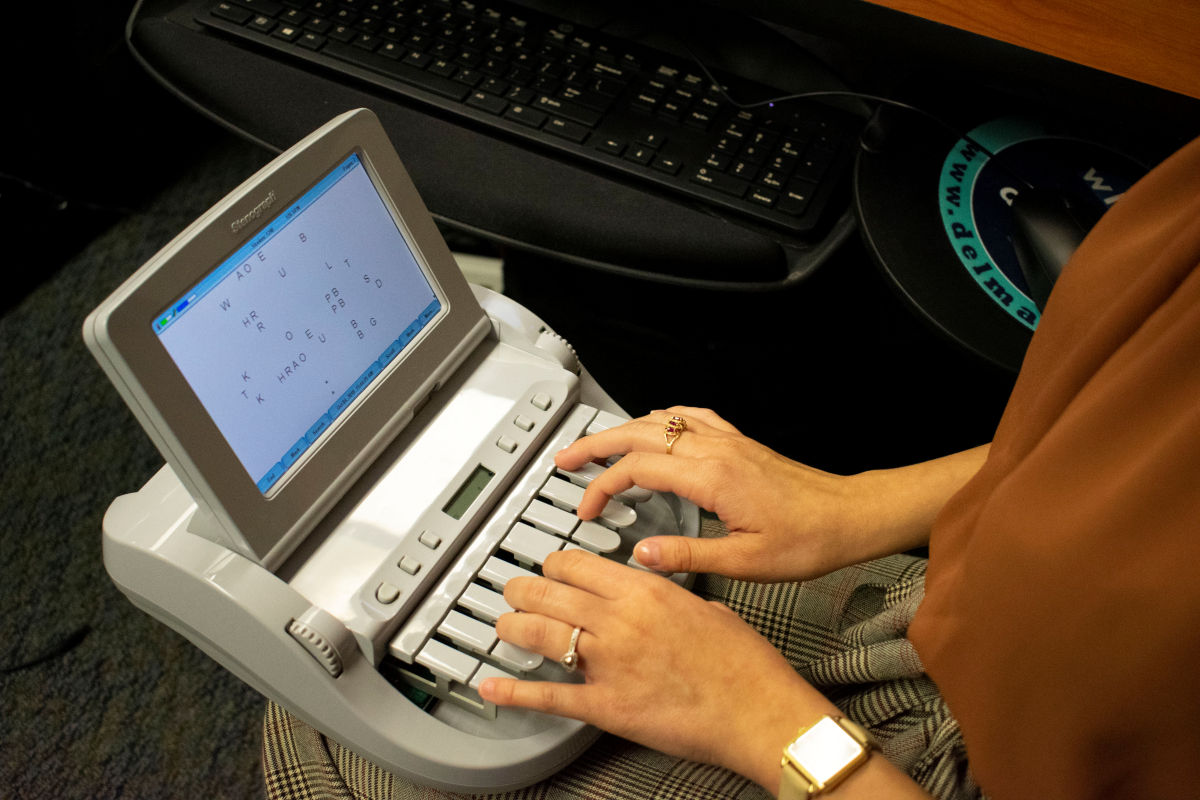Court Reporting Providers-- What You Need to Know for Legal Situations
Court Reporting Providers-- What You Need to Know for Legal Situations
Blog Article
Comprehending the Importance of Court Reporting in Legal Provider and Proceedings
Court reporting plays a pivotal function in the legal landscape, serving as the backbone of accurate documentation in various legal proceedings. By offering verbatim transcripts, court reporters ensure that every testimony and disagreement is carefully captured, consequently securing the stability of the judicial process.
Role of Court Reporters

In enhancement to transcription, court press reporters are frequently tasked with managing and maintaining the circulation of process. They have to be proficient in lawful terms and possess a detailed understanding of court procedures to guarantee that the record mirrors the context and nuances of the dialogue. Their job might likewise extend past standard courts, encompassing administrative hearings, adjudications, and various other legal setups where documents is necessary.
Furthermore, stenotype reporter might give real-time coverage, allowing immediate accessibility to transcripts throughout procedures, which can be crucial for the reliable management of justice. By guaranteeing that a precise document is maintained, stenotype reporter copyright the honesty of the legal procedure, serving and assisting in appeals as an essential resource for lawful experts in their search of justice.
Value of Precision

The function of precision expands beyond simple transcription; it includes the capacity to capture the nuances of speech, including tone, emphasis, and non-verbal hints, which can be critical in understanding the context of declarations made. An accurate record ensures that all parties entailed-- judges, lawyers, and juries-- have accessibility to the very same details, promoting fairness and transparency in the judicial process.
Furthermore, precise transcripts are important for the appellate process, where greater courts depend on them to assess reduced court choices. Mistakes can endanger the result of a charm, potentially affecting a party's rights and liberties. Hence, the dedication to precision in court coverage is not just a specialist responsibility however a foundation of justice that supports the rule of regulation.
Kinds of Legal Proceedings
Covering a vast variety of legal contexts, court press reporters are essential in numerous types of legal process, each needing unique methods and skills. Amongst the most usual kinds are civil litigation, criminal trials, and management hearings. In civil litigation, court reporters record depositions, activities, and statements, guaranteeing that every information is documented precisely for potential charms or settlements.
In criminal tests, the duty of court press reporters becomes also more essential, as they record all elements of the process, including jury options, witness statements, and punishing stages - Court Reporting. The accuracy and immediacy of these documents are paramount, provided the possible effects for defendants and the stability of the judicial system
Management hearings, frequently carried out by governmental firms, also depend on stenotype reporter to maintain official documents of process. These hearings can involve disagreements regarding regulative conformity, work concerns, or professional special info licensing, requiring exact documents.
Additionally, specialized proceedings such as mediation and arbitration require stenotype reporter to capture the nuances of settlements and contracts. Each kind of legal action presents distinct difficulties, highlighting the value of knowledgeable court press reporters in promoting the honesty of the lawful procedure.
Modern Technology in Court Reporting
Advancements in innovation have actually reinvented the field of court coverage, improving both performance and accuracy helpful hints in the transcription process. Traditional approaches of hands-on note-taking have been supplemented and, in some situations, replaced by sophisticated digital tools that streamline workflows and boost precision (Court Reporting). Stenotype reporter now utilize advanced steno machines outfitted with real-time transcription capacities, enabling instant access to a verbatim account of proceedings
Moreover, the integration of speech acknowledgment software program has further changed the coverage landscape. This technology enables the automated transcription of spoken words, considerably reducing the moment required for producing main records. Additionally, cloud-based systems help with easy storage space and retrieval of records, guaranteeing that legal specialists can access vital files from anywhere, any time.
Video clip conferencing tools have actually likewise emerged as crucial components in remote depositions and hearings, aiding court reporters record procedures in real-time, despite place. The combination of these technical advancements not only boosts the accuracy of lawful documentation yet likewise sustains a more reliable and flexible legal process. As the area remains to evolve, accepting these innovations will be crucial in satisfying the expanding demands of the legal market.
Moral Considerations in Coverage
The integration of innovation in court coverage brings with it a collection of ethical factors to consider that specialists must navigate meticulously. As court reporters progressively utilize electronic devices, issues surrounding honesty, precision, and confidentiality concern the leading edge. Shielding delicate details is paramount; reporters should guarantee that any type of electronic records are safely kept and shared just with accredited people.
Moreover, the accuracy of transcriptions is crucial. Utilizing software for real-time reporting does not absolve court reporters from the duty of guaranteeing that the end product is precise. Ethical obligations dictate that any kind of mistakes need to be immediately remedied and interacted to relevant parties.

Finally, compliance with lawful standards and sector guidelines is important. Court press reporters need to these details stay notified about advancing honest standards to support the trust put in them by the lawful system. By attending to these ethical factors to consider, court reporters can remain to provide invaluable solutions in lawful proceedings while keeping public confidence.
Final Thought
To conclude, court coverage plays a crucial role in the legal system by making certain dependable and exact documentation of judicial procedures. The thorough work of stenotype reporter maintains the integrity of the legal procedure and sustains the rights of individuals entailed. The assimilation of technology improves performance while keeping ethical requirements. Inevitably, the importance of court reporting can not be overstated, as it functions as an essential foundation for fairness, transparency, and the efficient management of justice.
Court reporting plays a critical function in the legal landscape, serving as the backbone of accurate documentation in various lawful process.Court press reporters continually play an essential duty in the judicial procedure by producing precise, verbatim transcripts of legal proceedings.Moreover, exact records are important for the appellate process, where higher courts count on them to assess reduced court decisions.Covering a wide array of lawful contexts, court press reporters are necessary in different types of lawful process, each needing unique techniques and skills. By dealing with these ethical factors to consider, court reporters can continue to give very useful solutions in legal proceedings while keeping public self-confidence.
Report this page